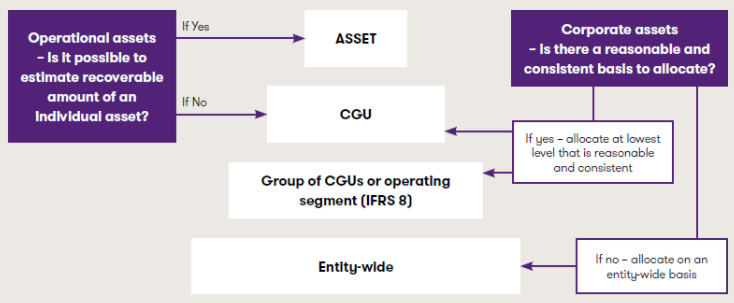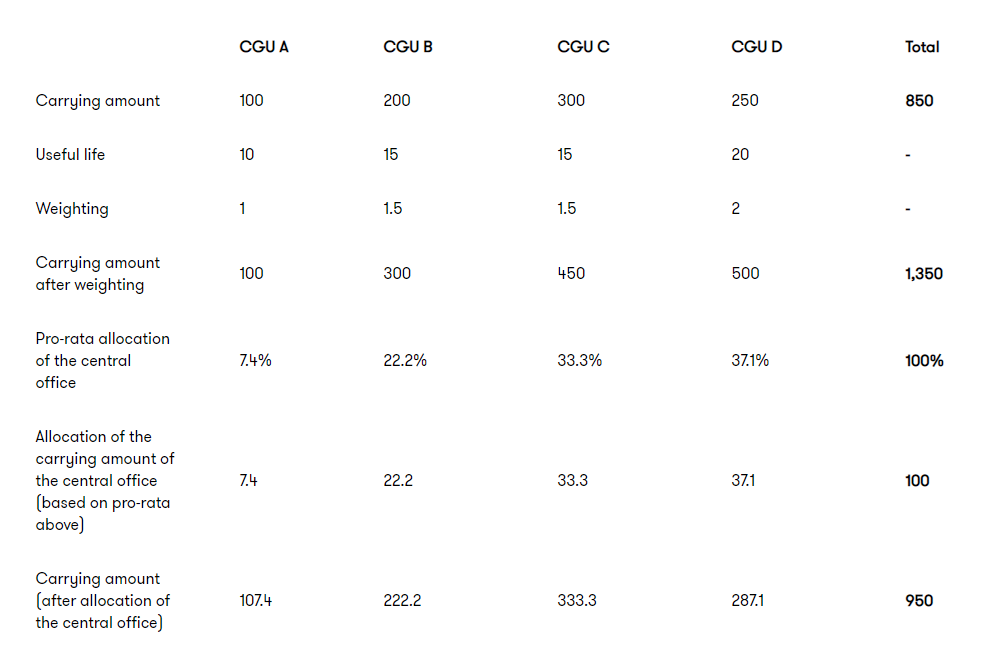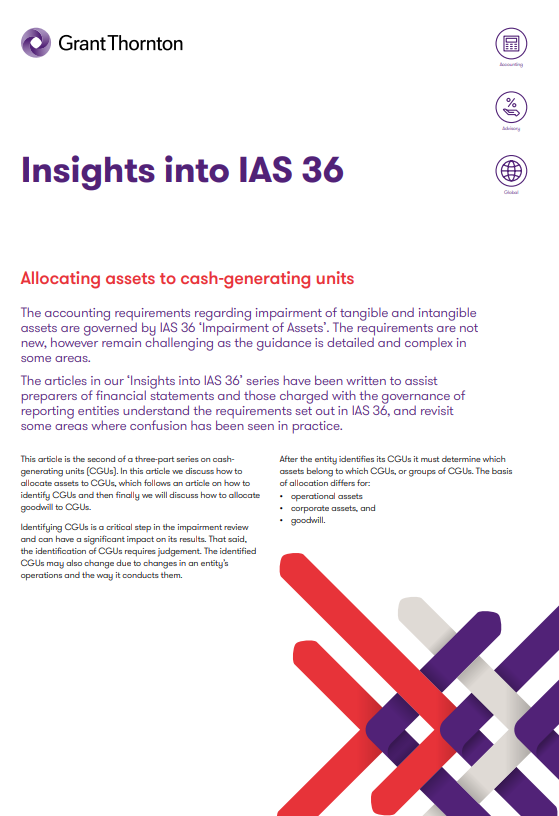-
Corporate Tax
We are your problem solvers for corporate tax issues
-
Restructuring, Mergers & Acquisition
Expertise and creativity for the perfect structure
-
International Tax
We are here, whenever our clients require our assistance
-
Transfer pricing
We are your experts for an optimal transfer pricing structure
-
Indirect Tax & Customs
We take care of your indirect taxes so you can take care of your business
-
Private Wealth
We are your competent partner in the field of Private Wealth Tax Services
-
Real Estate Tax
We are a valuable partner at every stage of your property's life
-
Global Mobility Services
Local roots and global networking as a secret for successful assignment management
-
Advisor for Advisor
As advisors for advisors, we support in complex situations
-
Accounting & Tax Compliance Services
Grant Thornton Austria - Your Partner for Experts for Accounting & Tax Compliance Services. In an evolving regulatory landscape, efficient accounting, tax compliance, and financial statement preparation processes are crucial for maintaining an accurate and up-to-date view of your company’s financial position while ensuring compliance with all legal requirements. We provide tailored solutions that not only save your time and resources but also ensure compliance with complex regulations. Our experts are here to support you, allowing you to focus on your core business.
-
Payroll & People Advisory Services
Ensuring Compliance, Efficiency, and Strategic HR Solutions In an evolving legal landscape, it is crucial for companies of all sizes to have efficient and legally compliant payroll accounting systems. The ever-changing regulations and increasing complexity make this an ongoing challenge. At Grant Thornton Austria, we provide comprehensive, precise payroll processing as part of our Payroll & People Advisory Services. Additionally, we offer customized advisory services to help clients optimise their HR strategy, improve operational efficiency, and minimize potential risks.
-
Tax Controversy Services
Your Partner when it matters most! In increasingly complex environment and considering frequent changes in tax regulations, businesses are facing intensified scrutiny from tax authorities. This has resulted in a significant rise of complex tax audits, investigations and potential disputes. Our Tax Controversy Services are tailored to help you navigate these challenges proactively and effectively. Our experts will guide you through all stages of tax proceedings, ensuring robust defence of your position and advising you on preventive measures to minimize the risk of future tax disputes.
-
Tax Technology Services
Your digital partner for an efficient future! In an increasingly digitalised business world, companies must constantly look for optimisations and adjustments to ensure their long-term success. In order to best prepare for the future and to achieve efficiency increases and process optimisations in the digital area, the experts at Grant Thornton Austria are at your side as a reliable partner as part of our Tax Technology Services.
-
Audit of annual and consolidated financial statements
We place particular emphasis on customized solutions and international service and adapt our services to your needs.
-
Assurance related advisory services
Assurance related advisory services are based on the knowledge and expertise that are the staff of life of our auditors.
-
Global audit technology
We apply our global audit methodology through an integrated set of software tools known as the Voyager suite.
-
Accounting related consulting
Accounting in accordance with UGB, US-GAAP or IFRS is in constant motion. The integration of new regulations into their own accounting systems poses special challenges for companies.
-
Valuation
Valuations are a core competence of Grant Thornton Austria. As auditors and tax advisors we combine profound know-how with our practical experience to offer you customized solutions for your valuation assignment. Our industry expertise is based on years of services to our clients, including listed companies as well as owner-managed companies with an international focus. We advise on valuation matters related to arbitration and provide expert opinions.
-
Forensic Services
When it comes to risks in business, our experts are on hand. We support you not only in suspicious cases or in disputes, but also develop suitable strategies in the area of prevention to avoid serious cases as far as possible. Our Cyber Security team helps you to keep your networks and applications secure and is quickly on hand in the event of a security leak.
-
Cyber Security
Cyber incidents, IT system failures, the resulting business interruptions and the loss of critical data are one of the greatest business risks for companies. Recent cases underline the need for strategic protection and awareness of the issue and require a holistic approach and technical expertise that takes into account all legislative, regulatory and technical aspects of cyber security to protect companies against the daily increase in cybercrime incidents.
-
Sustainability Services
Sustainability is no longer a trend, but the only way to create a future worth living. Our experts will support you in successfully developing your sustainability strategy and preparing your sustainability reporting in compliance with regulations.
-
Transaction Support
We can support you throughout the transaction process – helping achieve the best possible outcome at the point of the transaction and in the longer term.
-
Merger & Acquisition
Companies start new activities and separate from old ones, cooperate and merge. Markets and competitive conditions are subject to constant and increasingly rapid change. As a result, existing business models are changing. Some companies have to restructure and reorganize. But new business opportunities also open up.
-
Restructuring & Going Concern Forecast
Restructuring & Going Concern Forecast: Bundled services for your strategic, operational and financial decisions offer the right answers for companies, banks, shareholders and investors.
-
Internal Audit
Internal Audit helps companies and organisations to achieve their goals by analysing and evaluating the effectiveness of risk management, controls and management and monitoring processes. Internal Audit focuses on independent and objective audit (assurance) and consulting services that improve the value creation and business activities of your company.
-
Expert dispute resolution & advisory
Grant Thornton Austria offers comprehensive services in the field of business-oriented expert services with a broad range of competencies from banking to communication. The core activity of experts is the objective recording of findings and the preparation of expert opinions - regardless of all external circumstances. Our experts Gottwald Kranebitter and Georg H. Jeitler, as sworn and court-certified experts, ensure that the highest professional standards and the principle of objectivity are observed.
-
Blockchain and Crypto-Asset
Blockchain as a carrier technology for crypto currencies and smart contracts, among other things, is becoming increasingly important. Grant Thornton Austria offers comprehensive audit and confirmation services for block chain technologies and business models.
-
International Project Coordination
Our International Engagement Management team is your central point of contact for international projects in all our service lines. We take care of operational project management for you and act as a central point of contact and coordination for your projects. We support companies that start international projects from Austria as well as companies from abroad that want to gain a foothold in Austria or use Austria as a hub for their international projects, especially in the DACH (Germany, Austria and Switzerland) and CEE region.
-
International Desks
As a member of the Grant Thornton network, we guarantee direct access to resources from our worldwide circle of partners. This global connection enables us to seamlessly integrate highly qualified specialists and industry experts from different countries around the world into our teams. Through our broad perspective and diverse expertise, we ensure that we can optimally meet the individual requirements of our clients in an increasingly globalised economy.
This article is the second of a three-part series on cashgenerating units (CGUs). In this article we discuss how to allocate assets to CGUs, which follows an article on how to identify CGUs and then finally we will discuss how to allocate goodwill to CGUs.
Identifying CGUs is a critical step in the impairment review and can have a significant impact on its results. That said, the identification of CGUs requires judgement.
The identified CGUs may also change due to changes in an entity’s operations and the way it conducts them.
After the entity identifies its CGUs it must determine which assets belong to which CGUs, or groups of CGUs. The basis of allocation differs for:
- operational assets
- corporate assets, and
- goodwill.
The below diagram summarises the different allocation bases for assets:

Operational assets
As discussed in our previous article, recoverable amount is determined (if required) at the level of individual assets when possible. Where it is not possible to estimate the recoverable amount of the individual operational asset it is allocated to the CGU to which it belongs.
Assets that contribute to the cash flows of a CGU also need to be allocated to that CGU even if it is possible to determine recoverable amount individually (because, for example, an asset’s value in use (VIU) can be estimated as similar to its fair value less costs of disposal (FVLCOD)). This is to ensure a like-for-like comparison when the CGU is tested and its recoverable amount is compared to its carrying value.
The discussion in ‘Insights into IAS 36 – Identifying cash-generating units’ provides guidance on identifying the CGU to which an asset belongs.
Corporate assets
In some cases, management may identify certain assets that contribute to the estimated future cash flows of more than one CGU. It would be inappropriate to allocate these assets entirely to a single CGU. Such assets are referred to as ‘corporate assets’ or ‘shared assets’ and may include (for example):
- a headquarters building
- IT equipment
- research centre, or
- corporate or global brands.
Distinctive characteristics of corporate assets are that they do not generate cash inflows independently of other assets or groups of assets and their carrying amount cannot be fully attributed to the CGU under review.
If there is an indication of impairment for the corporate asset itself, recoverable amount cannot be determined at the individual asset level, unless management has decided to dispose of it (because corporate assets do not generate separate cash inflows).
Corporate assets therefore need to be incorporated into the impairment review at the CGU level – not only to test the asset in question (when necessary), but also to test the CGUs that benefit from those assets. To do so, the entity should:
- identify corporate assets that relate to the CGU under review, and
- allocate the carrying amount of the corporate assets on a reasonable and consistent basis to the CGU under review (if a reasonable and consistent basis can be identified).
Where a portion of the carrying amount of a corporate asset cannot be allocated on a reasonable and consistent basis, the assets are incorporated into the impairment review at a higher level and the analysis becomes more complicated. This will be addressed in a later article.
Example 1 -Identification and allocation of corporate assets to CGUs
Entity E has four CGUs: A, B, C and D. The carrying amounts of those units do not include goodwill. During the period, significant adverse changes in the legal environment in which Entity E operates take place. Entity E conducts impairment tests of each of its CGUs in accordance with IAS 36. At the end of the period, the carrying amounts of CGUs A, B, C and D are CU100, CU200, CU300 and CU250, respectively.
The four CGUs all utilise a central office and a shared global brand (carrying amounts of CU100 and CU75, respectively). Management of E has determined the relative carrying amounts of the CGUs are a reasonable approximation of the proportion of the central office building devoted to each CGU, but the carrying amount of the global brand cannot be allocated on a reasonable and consistent basis to the individual CGUs.
The remaining estimated useful life of CGUs A, B, C and D are 10, 15, 15 and 20 years respectively. The central office has a remaining useful life of 20 years and is depreciated on a straight-line basis.
Analysis
Ignoring tax effects, Entity E identifies all corporate assets that relate to the individual CGUs under review (the central office and shared global brand).
Entity E concludes the carrying amount of the central office can be allocated on a reasonable and consistent basis to the CGUs under review while the carrying amount of the global brand cannot.
Although not the only way to do so, Entity E allocates the carrying amount of the central office to the carrying amount of each individual CGU using a weighted allocation basis because the estimated remaining useful life of A’s CGU is 10 years, whereas the estimated remaining useful lives of B and C’s CGUs are 15 years and D’s CGU is 20 years.

Practical insightAllocating corporate assetsIAS 36 provides only limited guidance as to what is meant by ‘allocated on a reasonable and consistent basis’ for allocation of corporate assets to CGUs or groups of CGUs. Judgement is therefore required. This judgement will depend on the nature of the asset and should aim to reflect the extent to which each CGU benefits from the corporate asset. In our view, however, a reasonable and consistent basis of allocation should normally be possible in most circumstances by taking a pragmatic approach, even if the benefits obtained by the CGU are less clear-cut or observable. the example above shows one such pragmatic approach (allocating corporate assets using CGUs’ carrying amounts, weighted by their useful lives) but several other methods could also be supportable (for example, headcount, revenue, floor space or utilisation metrics depending on the circumstances). |
Practical insightCorporate assets and shared corporate costs in the regulatory spotlightIn estimating VIU for a CGU that benefits from a corporate asset, an entity must ensure it also allocates shared corporate costs relating to that corporate asset. A regulatory decision published in the April 2013 European Securities and Markets Authority (ESMA) Report (ESMA/2013/444) highlights this point whereby an issuer did not allocate the costs of corporate officers to the individual CGUs on the basis the cash flows benefited the company as a whole rather than the individual CGUs (highlighting the criterion of independency of cash flows when determining the cash inflows and outflows of a CGU). In the regulator’s view, the corporate costs were cash outflows that were necessarily incurred to generate the cash inflows from continuing use of the assets and could be allocated on a reasonable and consistent basis to the asset. The regulator concluded excluding certain corporate costs from the costs allocated to CGUs did not comply with the requirements of IAS 36 and all cash outflows had to be included in the cash flow forecasts. The corporate costs were cash outflows that, according to IAS 36, were necessarily incurred to generate the cash inflows from continuing use of the CGU’s assets and could be allocated on a reasonable and consistent basis to the CGU. |
How we can help
We hope you find the information in this article helpful in giving you some insight into IAS 36. If you would like to discuss any of the points raised, please speak to our experts Christoph Zimmel and Rita Gugl.



